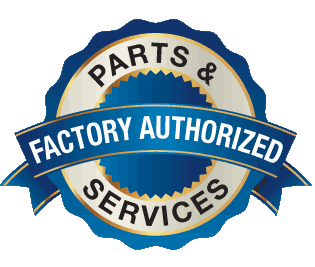The HVAC contractors at Houston’s Richmond’s Air discuss what makes a cooling technician NATE Certified, and why this designation ensures quality service
You may have seen it on a website or even on a patch on your HVAC technician’s shirt: the slogan NATE Certified. NATE stands for North American Technician Excellence and it’s the main certification of technicians who work in the Heating Ventilation, and Air Conditioning (HVAC) industry. NATE certification is meant to show consumers that the technician they’re working with is trained to the highest industry standards.
How Does an A/C Technician Becomes NATE Certified?
It’s no easy task to become NATE certified. In order to do so, HVAC contractors must take a core exam that tests their knowledge of related HVAC topics, including:
- Basic Construction
- Basic Science
- Basic Electrical Principles
- Tools and Safety
- How to Achieve Desired Conditions
In addition passing the core exam, the technician must choose one specialty area to test in. This specialty area may be in either A/C service or installation, and can include:
- Air Conditioning Installation or Service
- Air Distribution Service or Installation
- Gas Heating Installation or Service
- Oil Heating Installation or Service
These exams aim to apply knowledge to everyday situations that an A/C repairman may face in the field. They’re known amongst HVAC technicians as being rigorous tests– you don’t go in without studying!
HVAC technicians can earn certification in more than one specialty area, if desired. In order to ensure that NATE certified technicians stay up-to-date on the most recent HVAC technology, they must recertify every two years. Recertification requires at least 18 hours of continuing education classes in the field of their specialty.
What is a Senior Level Technician?
Some A/C repair specialists may actually go on to earn their senior level technician NATE certification. These technicians are masters of their field, being certified in at least two specialty areas as well as taking a challenging HVAC analyst efficiency exam. Most technicians testing for senior level certification will have at least five years of work experience in the industry.
Why Is My Technician Not NATE Certified?
Not all technicians will be NATE certified. Because of the rigor of the tests, the NATE governing board recommends that technicians have at least one year of work experience for installation tests and two years of experience before attempting the service technician testing. Other technicians may not be certified because their employer doesn’t cover the cost of certification exams or continuing education.
While there are many technicians who don’t have NATE certification and are excellent at what they do, the certification was developed to bring quality standards and professionalism to the HVAC industry, as well as to make it easier for consumers to choose a reliable A/C repair and installation company.
Can an Entire HVAC Company Be NATE Certified?
NATE certification is limited to individual technicians. A business can advertise itself as a NATE Consumer Contractor when at least 50% of its technicians are certified. If you’re looking to specifically hire a technician with this certification, be sure you make that clear when setting up your appointment, even if the business generally advertises certification. If the business doesn’t advertise as NATE certified, they may still have certified NATE technicians; be sure to ask if they have any on staff.
NATE certification is just another way that HVAC technicians aim to provide the highest quality service for homes and businesses.
For reliable and knowledgeable service for your home, we invite you to contact the friendly, prompt and certified HVAC technicians at Richmond’s Air, a premier Houston A/C repair and installation company.
And for additional information, please continue browsing our Heat Beat knowledge center, or call to schedule an appointment or repair call today!
 Read reviews
Read reviews








